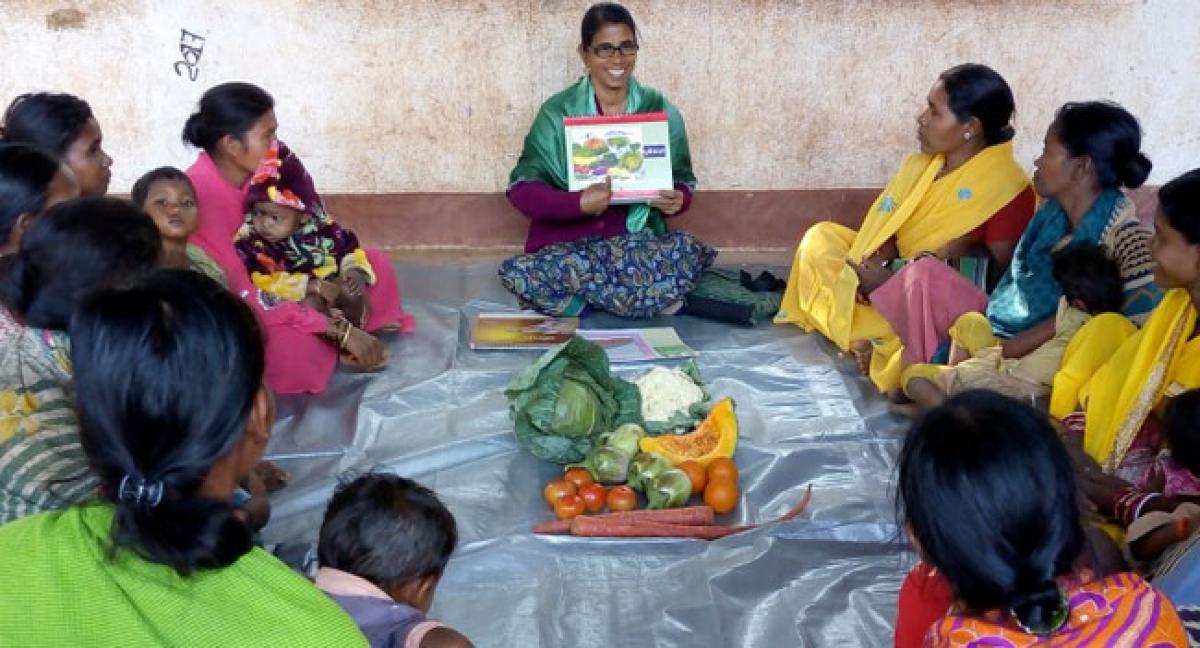Just In

Efforts at targeting malnutrition have been in place for several years in the district under the Integrated Child Development Services ICDS However, since the reach of the ICDS has been limited, undernutrition or malnutrition among the children still continues to haunt Khammam district
Khammam: Efforts at targeting malnutrition have been in place for several years in the district under the Integrated Child Development Services (ICDS). However, since the reach of the ICDS has been limited, under-nutrition or malnutrition among the children still continues to haunt Khammam district.
Therefore, many children in the district especially those in living rural and remote areas are suffering from severe malnutrition which includes protein-energy and micronutrient deficiencies such as iron and iodine along with Vitamin A deficiency and lack of access to safe drinking water and education.
Several children are not immunized since pregnant and lactating women are not getting any attention from public health department. With no access to safe drinking water, many of them are surviving on muddy water from the local stream.
The Democratic Student Union Leader Avinash said there is a lack of infrastructure in Aanganwadi centres, with regard to supplies and trained staff. Due to which the children are provided with poor quality of cereals and less pulses, legumes and nuts.
Besides, they are not supplied with clean water and no sanitation facilities. Moreover, the eggs that are supplied to Anganwadi centres weigh very less compared to eggs available in the general market, he added.
The Food Insecurity Atlas of Rural India, a valuable initiative of the MS Swaminathan Research Foundation and the World Food Programme, have pointed out that where child and maternal malnutrition, including micronutrient deficiency, co-exists with low levels of food supply, more attention needs to be paid to food delivery strategies and direct nutritional intervention.
“What is worrying is, the level of under-nutrition is very high, intensified by inequalities across regions. The worst affected are girls and the most marginalised among the rural poor, including Scheduled Castes and Scheduled Tribes,” observed the public health experts.
The National Council on India’s Nutrition Challenges (NCINC) selected Khammam and Adilabad districts under second phase of ‘Poshan Abhiyaan Mission’ based on the level of stunting and under-nutrition that is prevalent in these districts. Several programme would be conducted under the mission which would be held from September 9 to September 30 across the districts.
Poshan Abhiyaan Mission was launched on March 8, 2018 by the Prime Minister Narendra Modi. The abhiyaan targets to reduce stunting, under-nutrition, anemia (among young children, women and adolescent girls) and reduce low birth weight by 2022. Under the mission, the funds would be transferred directly to States and Union Territories for paying frontline functionaries.
The Project Officer of ICDS Nirmala Jyothi said, “to overcome the problems of malnutrition that is prevalent in the district, the district was selected under Poshan Abhiyaan. The focus of the Abhiyaan will be on the first 1000 days of the child and preventive care for adolescent girls, women and mothers.”
Home-based care for young child (HBYC) would be a crucial component of the mission. In HBYC, ASHAs supported by Anganwadi workers will visit the homes of children aged between 3 to 15 months and sensitise mothers on energy density and diet of child, she said.
District Collector R V Karnan conducting a meeting with officials of ‘Medical and Health’ and ‘Women and Child Welfare departments’ ordered them to conduct the programmes under Poshan Abhiyaan successfully in the district to overcome the problem of malnutrition among the children along with supplying nutritious and balanced diet to the pregnant women in Anganawadi centres besides conducting required medical tests.

© 2024 Hyderabad Media House Limited/The Hans India. All rights reserved. Powered by hocalwire.com







